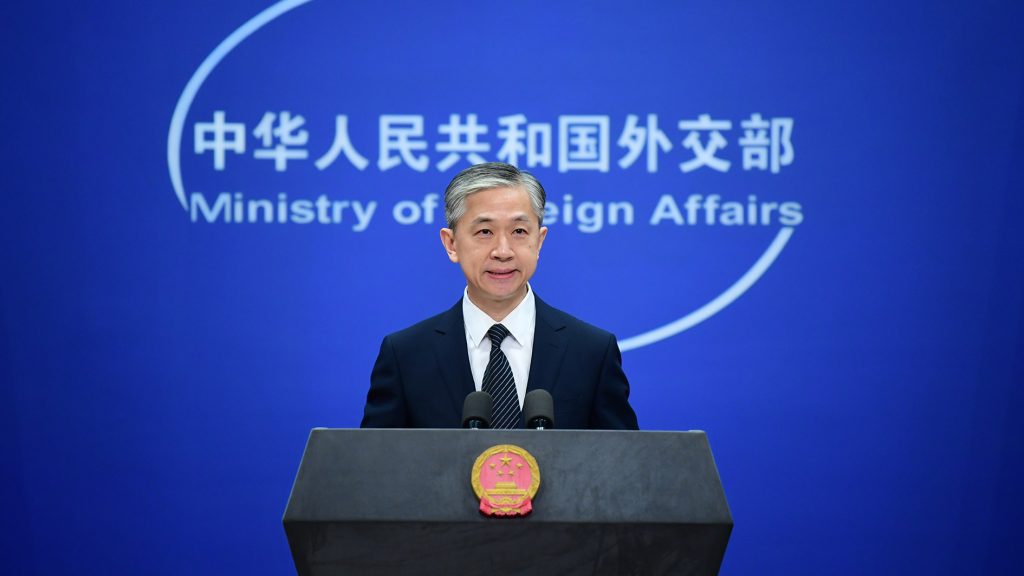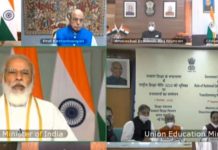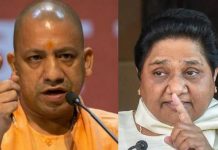By proactively addressing the rising Iran-Pakistan tensions, China has again established itself as a key player in the geo-politics and a new messiah for peace in South Asia. much to the discomfiture to the United States – by Gopal Misra

Beijing does it again. During the last quarter of the year 2023, it succeeded in restoring diplomatic ties between Iran and Saudi Arabia; and now it prevails upon Islamabad and Tehran to avoid any further conflict on their sensitive borders. Much to the discomfiture to the White House, China is emerging to be a new messiah for peace in the regions of the Gulf and South Asia.
The rise of Dragon playing a key role in the geo-politics has given a setback to the ‘great game’ of the US establishment on retaining its assertive role in 21st century. The American agenda, which was being discussed through various think tanks comprising strategic planners and eminent members of academia, especially following the collapse of the Soviet Union in the nineties, has lost its direction, at least temporarily, due to the assertive policies of the Chinese leadership.
During the past two years, the US administration under President Joe Biden’s massive financial and military support to Ukraine in its ongoing war with Russia has turned into a perennial conflict between the western block and Russia. It also reveals that the agenda of divide and rule, the British had adopted in their 250-year rule in India, is being vigorously followed by Washington. It is natural for Indians to be reminded of this policy in American strategy in provoking conflict between Ukraine and Russia having centuries of close cultural, religious and ethnic ties.
Similarly, the recent clashes between Iran and Pakistan could have flared up into a much bigger conflict, but the timely Chinese intervention has diffused the situation, at least for the time being. It is also being asked how the Afghan Taliban could use the state-of-the art weapons abandoned by the American forces, while suddenly leaving Kabul. Even in New Delhi strategic affairs, experts are at their wits end about how the present incumbents in Afghanistan are maintaining the weapons and how they got trained in using them. The possibility of connivance of an American deep state with Qatar cannot be ruled out in empowering the Taliban fighters. A section of these Taliban fighters have common ethnicity with the Muslims of Xinjiang, a Chinese province. In this context, Iran-Pakistan clashes must be understood and the timely intervention of China before it becomes unmanageable, provoking Americans to re-enter the fluid situation in the region.
The clash and beyond
The tit-for-tat strikes have recently become a common phenomenon in the cross-border clashes in different parts of the world, whether it is between Russia and Ukraine in Europe, Hamas’s terrorist attack on Israel in West Asia and now between Iran and Pakistan, not far off from India. The Indian concerns about the clashes in the region are natural.
However, instead of working for peace, Washington appears to be fanning conflict; perhaps, settling its old anger against Russians. It is often stated that what you sow, you also reap. It appears that the Americans have adopted the British hatred against the Russians, who follow Orthodox Church. After the collapse of the USSR, the Warsaw Pact being dissolved, the then Russian president Yeltsin was keen to join NATO.
It may also be noted that the new Russian leadership had decided to abandon their international role, and wanted to be a part of Europe and its economy. The economic ties between Russia and Europe had increased many folds, but Washington deliberately enrolled Eastern European powers, perhaps in an effort to dilute the Russian influence in the region. The apprehension is that the USA might be engineering conflicts among India western neighbours.
Sun Weidong in Islamabad
Sun Weidong, Chinese Vice Foreign Minister, was in Islamabad, on January 20, 2024 to attend the 4th meeting of the CPEC-Joint Working Group on International Cooperation and Coordination, but the visit was also used to tell the present caretaker government in Pakistan that China “disapproves” any conflict between Pakistan and Iran as well as with Afghanistan. In the case of Iran, China imports a huge quantity of crude oil for its industry. In the case of Afghanistan, it apprehends that Islamists may walk into its Muslim-majority province of Sinkiang. Also, China is planning to mine precious mineral resources from Afghanistan.
It is true that Sun Weidong’s visit was planned much before the Iran-Pakistan clashes, but it enabled the top Chinese diplomat to communicate his country’s concern on growing decline in Islamabad-Tehran ties. Apart from inaugurating the CPEC Corner at the Ministry of Foreign Affairs library, he also met Pakistani President Arif Alvi.
Weidong’s visit has also ensured that during Iran’s Foreign Minister Hossein Amir-Abdollahian accompanied by some top Iranian military officials, visit to Pakistan later, the stress will be on peace. Amir-Abdollahian will also be meeting his Pakistani counterpart Jalil Abbas Jilani. Since the polls in Pakistan are due in February, the substantial discussion might be left to the new government. Earlier, Iran’s Foreign Minister acknowledged at Davos in Switzerland that his country has carried out attacks in Pakistan against the terrorists operating from Pakistani soil. He was in Switzerland attending the World Economic Forum. Their ambassadors too have returned to their respective positions in Tehran and Islamabad respectively.
US for redesigning boundaries
The border disputes between Pakistan and its neighbours, Afghanistan and Iran could be traced to British colonialism. The colonial power had created boundaries for having total control and more revenue. The Durand Line is not acceptable to Afghanistan, because it divides its Pashtun population. Similarly, people of Balochistan were subjugated by Pakistan due to Nehru’s reluctance to have Indian territories bordering with Iran and Afghanistan. There is a substantial population of the Baloch people in Iran and Afghanistan, and they want to form a greater Balochistan.
Similarly, the partition of Africa had begun with the Berlin Conference (1884–85) and ended by the early twentieth century. During this period, European colonizers partitioned Africa into spheres of influence, colonies, and various segments. They partitioned the vast continent with limited knowledge of the geography, history, and ethnic composition of Africa. In many African countries, a significant portion of their population belongs to groups split by colonial partitions.
There are a number of studies being undertaken in the USA for correcting the past mistakes, but the superpower has yet to evolve a strategy for ending disputes emanating due to the mistakes committed by the colonial powers.













